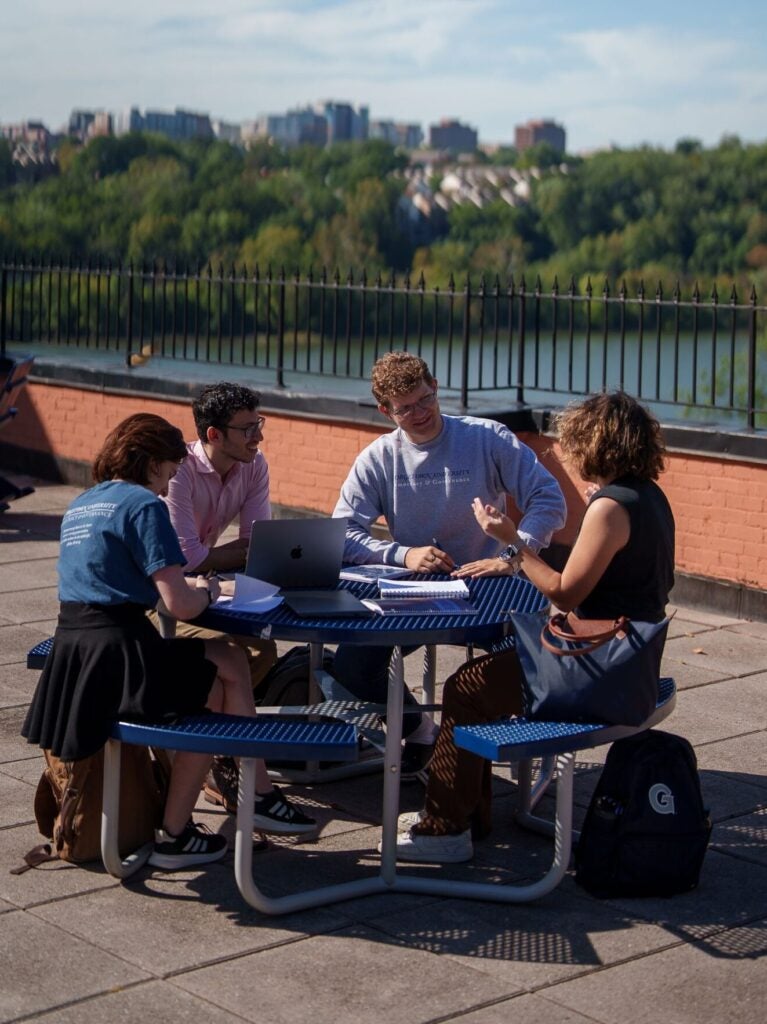Admissions & Tuition
The Master of Arts in Democracy & Governance prepares you for a career in the field through a powerful combination of theory, practice and specialized training. Learn how and when to apply and explore funding options as you start on your path to make an impact.
We offer full- and part-time study options, as well as an accelerated B.A./M.A. program for current Georgetown undergraduates.
Application deadline
| Round | Application Deadline | Expected Decision Notification |
|---|---|---|
| Final | January 15 | Mid-March |
How to apply
To apply to the Master of Arts in Democracy & Governance program, you must submit the application and all required materials. Our application information will help you through the process.
Tuition
Students in the Master of Arts Democracy & Governance pay tuition at the established Georgetown Graduate School of Arts & Sciences rate of $2,758 per credit hour for the 2026-2027 academic year. Our program is a 34-credit degree program.
Georgetown is offering a 10% scholarship on base tuition to federal civilian employees applying for qualifying master’s programs for the 2026-2027 academic year. Learn more about our federal worker scholarship.
*Tuition rates for each term are published annually, typically in February.
Tuition fees exclude individual health care or health insurance premiums, books and supplies, student fees, visas and any travel expenses. The Office of Revenue and Receivables provides additional information regarding tuition breakdown and student fees through the university.
Health insurance is mandatory for all full-time students, though students may be eligible to waive the health insurance fee if they already have health coverage. For more information on waiving the health insurance fee, please contact the Student Health Insurance Office.
Financial aid, scholarships and stipends
There are many opportunities to fund your graduate education, including financial aid, scholarships, fellowships and stipends.
Funding opportunities
- Merit-based scholarships
- U.S. federal need-based financial aid
- Assistance for veterans
- Assistance for international students
- Public service loan forgiveness
- Part-time employment
- External resources outside of Georgetown
We encourage you to review the financing information provided by the Georgetown Office of Student Financial Aid for guidance. You can explore opportunities offered through the Georgetown University Center for Research and Fellowships.
Connect
We welcome conversations so you can learn more about our program and campus. You can schedule an in-person or virtual visit to connect with current students and faculty. Email us with any questions at democracygovernance@georgetown.edu.
Request more information
The Master of Arts in Democracy & Governance program focuses on democratic governance, human rights protection and inclusive political participation. Discover how to join us and learn to foster dialogue, strengthen institutions and promote democratic principles.
